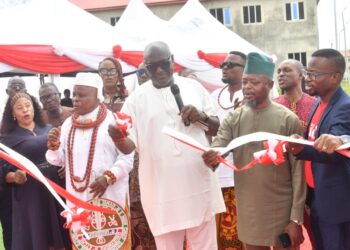The Centre for the Promotion of Private Enterprise (CPPE) has called for urgent legal and policy measures to protect the rights of local investors and employers as part of efforts to accelerate economic growth and ensure social stability.
Dr. Muda Yusuf, Director and Chief Executive Officer of CPPE, made the call in a policy statement released on Sunday in Lagos, stressing that investors, entrepreneurs, and employers are the lifeblood of any modern economy.
He noted, however, that while workers and employees enjoy significant legal protection in Nigeria, the same cannot be said for investors and employers, who remain exposed to disruptions and uncertainties, especially in the face of frequent industrial actions.
“This imbalance undermines investor confidence and leaves those who create jobs vulnerable to disruptions,” he said, highlighting the real sector as particularly affected due to its large workforce, high fixed costs, and long-term capital commitments.
Yusuf identified weak legal protection, unrestrained union actions, regulatory unpredictability, bureaucratic delays, and ineffective dispute resolution mechanisms as key vulnerabilities deterring investment and slowing economic progress.
He warned that unchecked investor vulnerability could lead to capital flight, a decline in foreign direct investment, job losses, reduced tax revenues, and slower growth. “Investors mobilise capital, create jobs, and generate the tax revenues that sustain government and society. Without them, there can be no sustainable growth or national prosperity,” he said.
Yusuf proposed the enactment of an Investor and Employer Protection Act to provide a robust legal foundation for safeguarding investors’ rights. The law, he suggested, should define the obligations of all parties—investors, employers, regulators, and unions—while prohibiting unlawful industrial actions and setting clear penalties for violations.
He further called for reforms to strengthen the Industrial Arbitration Panel (IAP) for faster and more impartial dispute resolution and recommended the creation of an Independent Investment Ombudsman Office to handle investor grievances.
Yusuf also urged greater transparency and accountability in labour union activities to ensure they operate within the law and align with national interests.
He emphasised that a fair and predictable business environment would restore investor confidence, attract both domestic and foreign capital, and boost job creation and fiscal revenues.
“Adopting the right policies will not only reduce strike-related disruptions but also strengthen Nigeria’s competitiveness, industrial productivity, and economic resilience,” he said.





